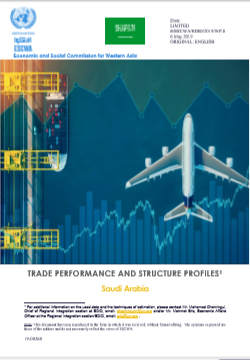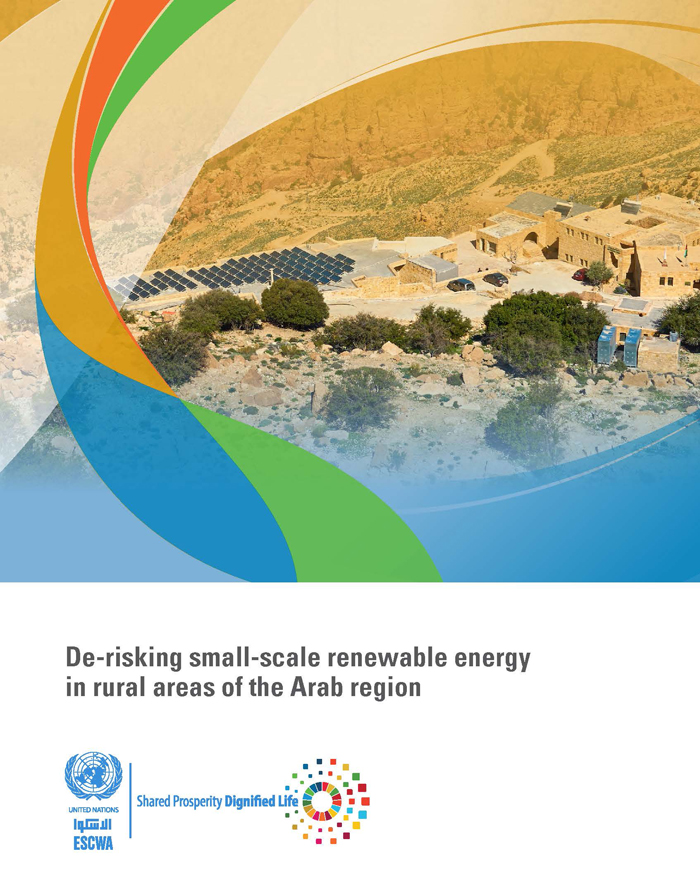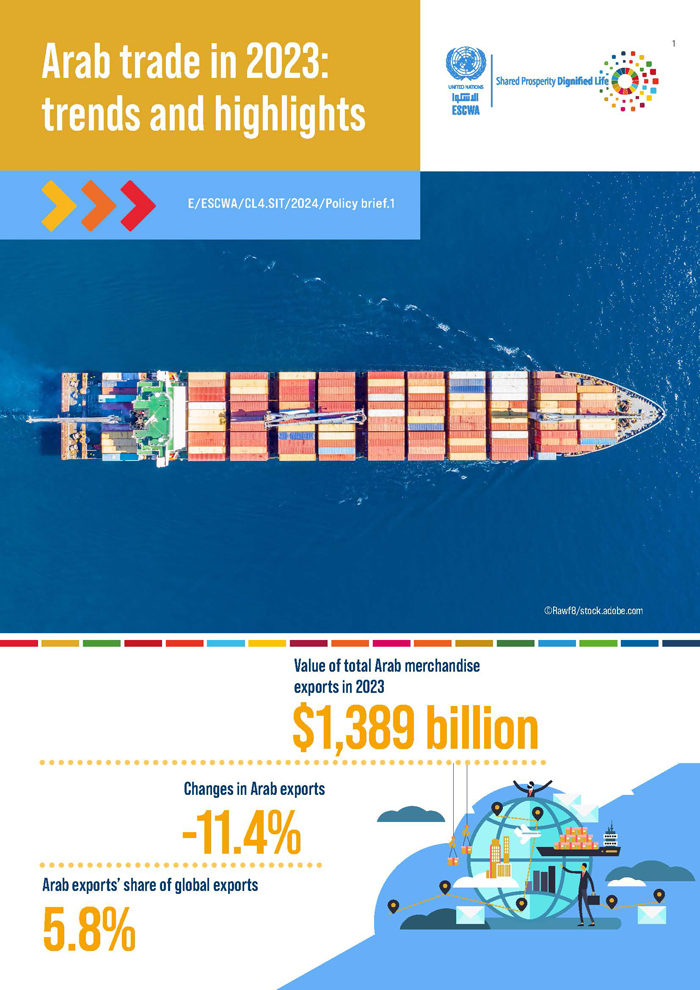
ESCWA Publication: E/ESCWA/EDID/2019/WP.8
Country: Kingdom of Saudi Arabia
Publication Type: Working papers
Cluster: Shared Economic Prosperity
Focus Area: Financing for development, Trade & regional connectivity
Initiatives: Blockchain for international trade
SDGs: Goal 8: Decent Work and Economic Growth
Keywords: International trade, Intraregional trade, Saudi arabia, Trade policy, Trade structure
Trade performance and structure profiles: Saudi Arabia
January 2019
This profile takes stock of the trade performance and structure of Saudi Arabia since 1995. In addition to aggregate trends in trade and foreign direct investment, a broad range of trade indicators are calculated specially for this profile using highly detailed product level data, making it a novel set of trade indicators for Saudi Arabia and the Arab region.
The analysis reveals that Saudi Arabia’s performance over the past two decades in merchandise trade and attracting foreign direct investment has been mixed. Its merchandise exports, as a share of GDP, have not maintained the peak level achieved in 2008 and have more than halved by 2016 compared to the peak level. Its merchandise imports, though, sustained similar levels over the past two decades. Saudi Arabia’s trade in services has shown significant variation since 1995 but its level remains rather low. Net FDI inflows into Saudi Arabia had been dormant before 2005. Relatively short-lived but high levels of FDI inflows were recorded in the second half of the 2000s, followed by a weaker but stable stream of inflows.
Traditional destinations for Saudi Arabia’s exports have mainly been PAFTA and ASEAN countries. PAFTA and sub-Saharan African countries hold relatively favorable prospects for Saudi Arabia’s exports, which show signs of shifting towards sophisticated products with limited diversity.
Related content
Financing for development
, Trade & regional connectivity
,
This profile takes stock of the trade performance and structure of Saudi Arabia since 1995. In addition to aggregate trends in trade and foreign direct investment, a broad range of trade indicators are calculated specially for this profile using highly detailed product level data, making it a novel set of trade indicators for Saudi Arabia and the Arab region.
The analysis reveals that Saudi Arabia’s performance over the past two decades in merchandise trade and attracting foreign direct investment has been mixed. Its merchandise exports, as a share of GDP, have not maintained the peak level achieved in 2008 and have more than halved by 2016 compared to the peak level. Its merchandise imports, though, sustained similar levels over the past two decades. Saudi Arabia’s trade in services has shown significant variation since 1995 but its level remains rather low. Net FDI inflows into Saudi Arabia had been dormant before 2005. Relatively short-lived but high levels of FDI inflows were recorded in the second half of the 2000s, followed by a weaker but stable stream of inflows.
Traditional destinations for Saudi Arabia’s exports have mainly been PAFTA and ASEAN countries. PAFTA and sub-Saharan African countries hold relatively favorable prospects for Saudi Arabia’s exports, which show signs of shifting towards sophisticated products with limited diversity.



